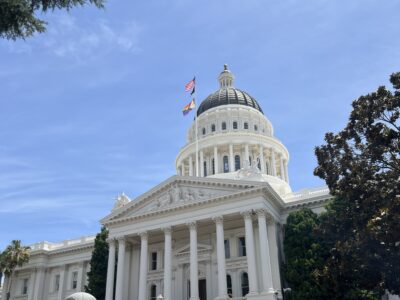Conservatives as Environmentalists
Environmentalism isn’t an aberration in conservatives. It has deep roots going back to the 1960s.
Scott Pruitt’s appointment as head of EPA illustrates how conservatism has become synonymous with anti-environmentalism. But that’s really a drastic oversimplification, as I explain in a new paper about the history of conservative environmentalism.
There were moments of strong environmentalism in the earlier days of the conservative movement. When he was running for mayor of New York City, William F. Buckley made a strong stand against air pollution, demanding immediate action to cut the use of coal and reduce automobile traffic. Barry Goldwater wrote with great trepidation about the impact that humans were having on the planet, calling for swift action even at the cost of the economy. Ronald Reagan, well after he had emerged as a major conservative figure, was also one of the most environmentalist governors in the history of California. As we all know, his record as president was far different. Even then, however, he made a personal stand in favor of the international treaty to save the ozone layer and signed a bill directing the government to start planning for climate change.
When you think about it, there is no fundamental reason for conservatives to align with resistance to environmental protection. Conservative values include preventing behavior like polluting the environment. Conservatives believe in upholding tradition and in historical continuity (wilderness, iconic species, fishing and hunting, state sovereignty to protect a state’s air and water from pollution from elsewhere.) These are exactly the reasons for the environmentalism of Governor Reagan, Senator Goldwater, and Mayoral Candidate Buckley.
Why did this strand of conservative thought fade? My view is that it had less to do with the logic of conservatism than with political and economic pressures. Wealthy funders like the Koch Brothers supported the think tanks that dominated conservative policy formulation, and industry funding powered the Republican Party. Conservative environmentalism was never proved false; it was merely proved inexpedient.
But conservative environmentalism has never disappeared. As Eric Biber noted last week, senior figures in the GOP and leading conservative economists advocate a carbon tax. They were echoing calls by some leading “new conservative” commentators and others within the conservative movement. So far, this is a distinctly minority position. But acknowledging the divisions within conservatism could be a valuable step in overcoming the polarization that is poisoning American political life.







Reader Comments